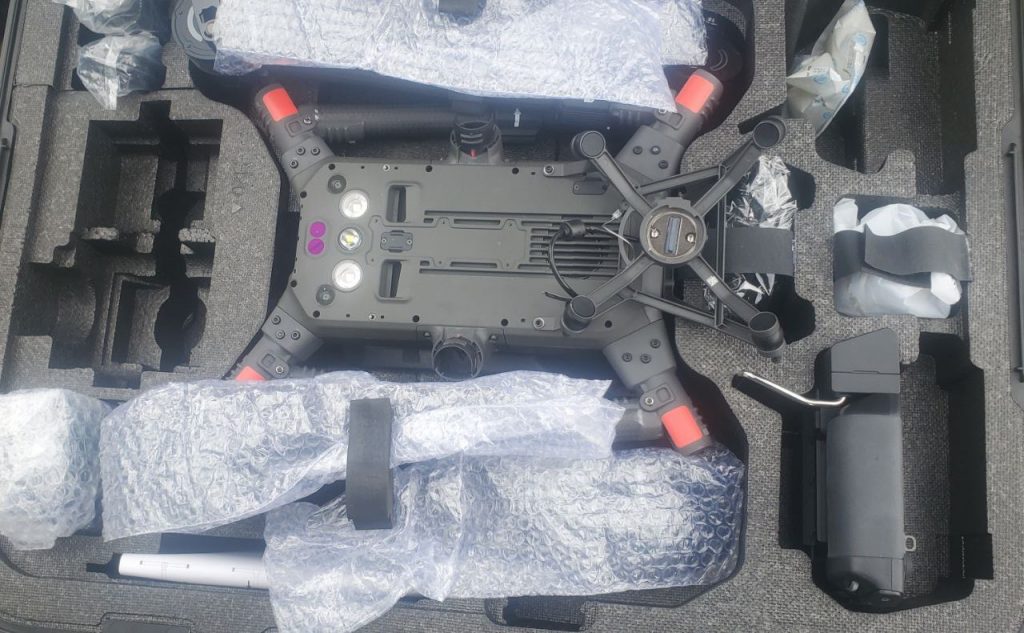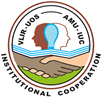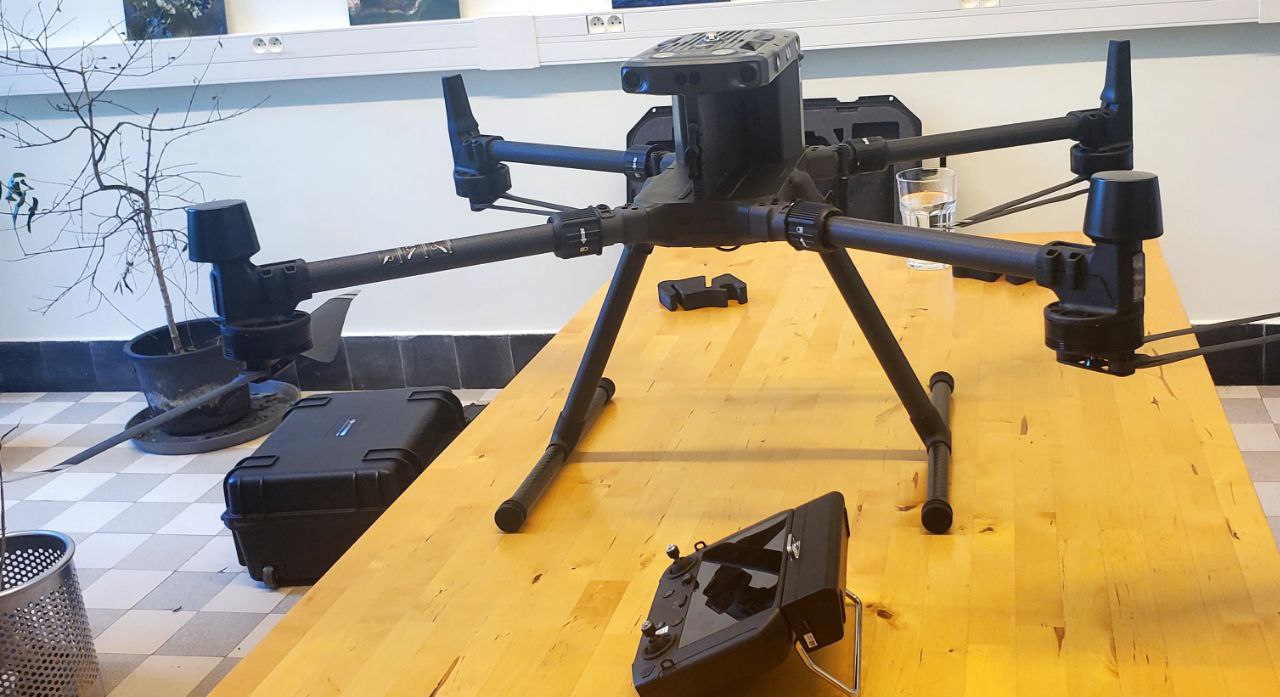The AMU-IUC Project, through its Research Sub-Project 6 (RSP-6), has acquired one of the most advanced drones on the market, the DJI Matrice 300 RTK, in a strategic move to elevate its research and community outreach efforts. The high-tech drone, known for its remarkable flight endurance of up to 55 minutes and an impressive transmission range of 15 kilometers, comes equipped with state-of-the-art artificial intelligence and a six-directional sensing and positioning system.
“This is a game-changer for us,” said Dr. Fassil, Program Manager for the AMU-IUC Project. “The capabilities of this drone allow AMU researchers and IUC PhD students to engage in sophisticated aerial data collection, ranging from environmental studies to outreach and monitoring programs.”
Getting the drone to AMU wasn’t without challenges. Given the advanced technology, the AMU-IUC Project had to navigate rigorous customs clearance and technical inspections by Ethiopia’s Information Network Security Agency (INSA). The drone has been granted special permission for educational use, ensuring its secure operation in collaboration with INSA. Dr. Fassil expressed gratitude to AMU management, INSA, and other government institutions for their vital role in acquiring the drone. “Their support was pivotal in making this a reality,” he added.

Asst. Prof. Behailu Merdekios, Vice President for Research and Community Engagement at AMU, and Project Coordinator of the AMU-IUC Project, hailed this development as a milestone for the university. “This positions AMU at the forefront of Ethiopian research universities,” he said, highlighting the drone’s potential to advance understanding of land degradation, biodiversity, and environmental changes.
One of the key beneficiaries of the drone’s capabilities will be Feven Kinfe, a PhD student from RSP-6. Her research combines in-situ water quality monitoring with aerial assessments to study short-term dynamics in water turbidity, sediment load, and algal blooms. The drone will also support joint research with Yibeltal Yihunie, a PhD student from RSP-4, focusing on mapping and evaluating biophysical brushwood check dams—a sustainable strategy to reduce runoff and enhance water quality.
RSP-6 has organized a workshop led by Prof. Dr. Wouter Maes from the UAV Research Centre at Ghent University to support these initiatives. The workshop is scheduled for September 15-20, 2024, and will bring together AMU researchers, AMU-IUC project members, and staff from AMU’s Corporate Communication Directorate Office and INSA.
In addition to the drone, the AMU-IUC Project has also recently acquired High-Performance Computing equipment donated by KU Leuven, Belgium. This advanced equipment will enable researchers to process complex datasets generated by the drone’s geospatial imaging technology, delivering faster and more accurate insights. With this new technology in place, AMU is set to become a major player in research and community outreach, benefiting not only the university but also the surrounding region and Ethiopia as a whole.


